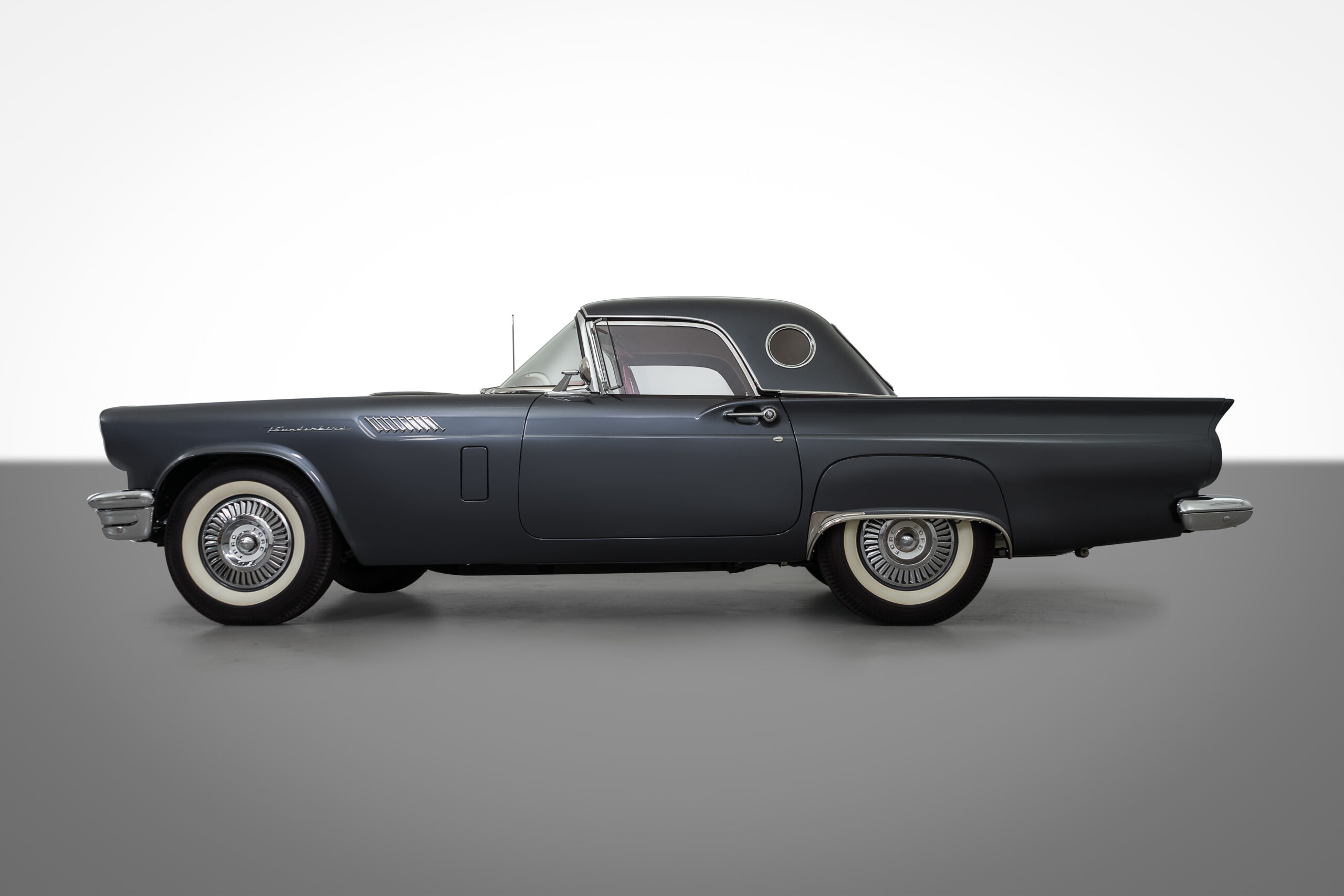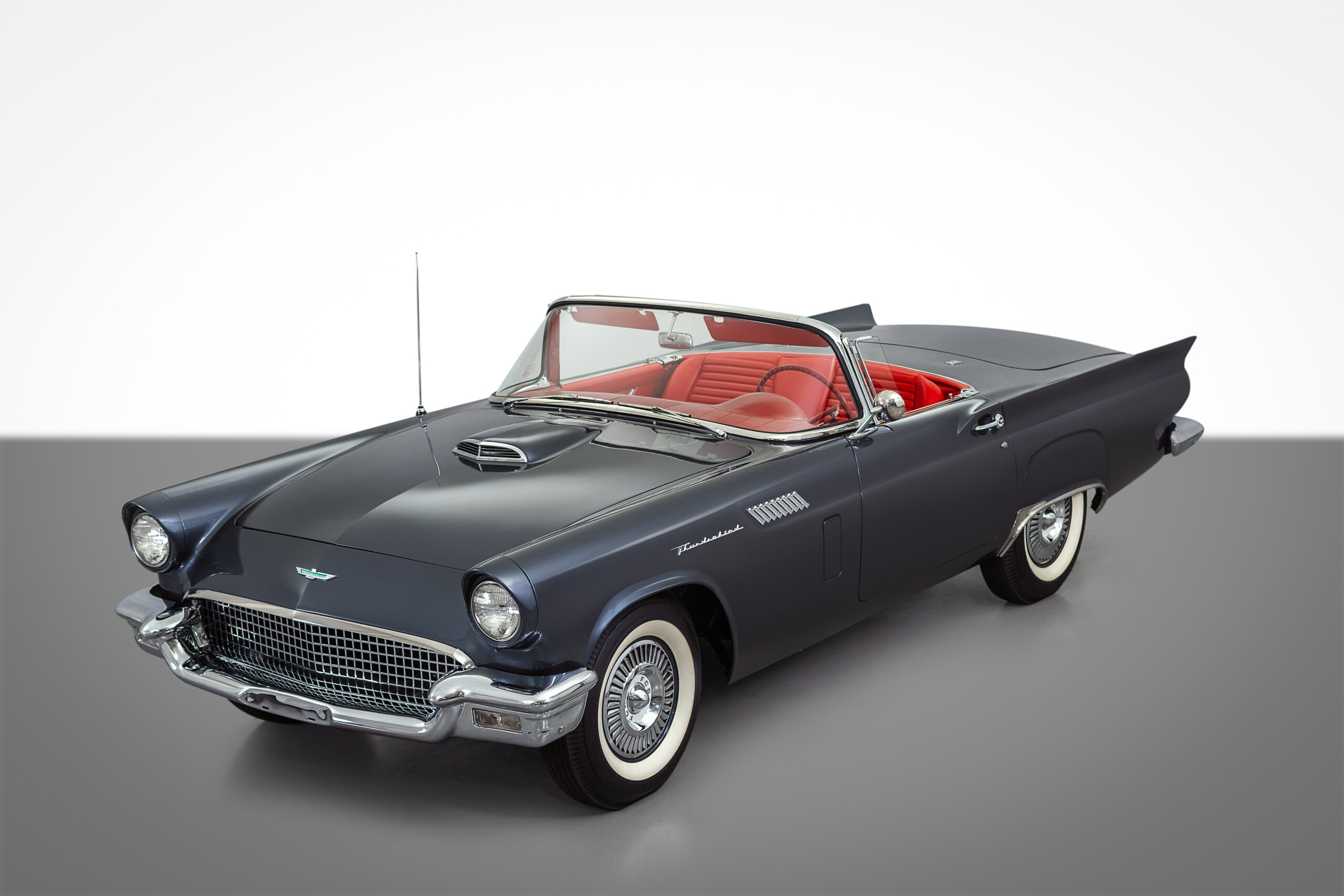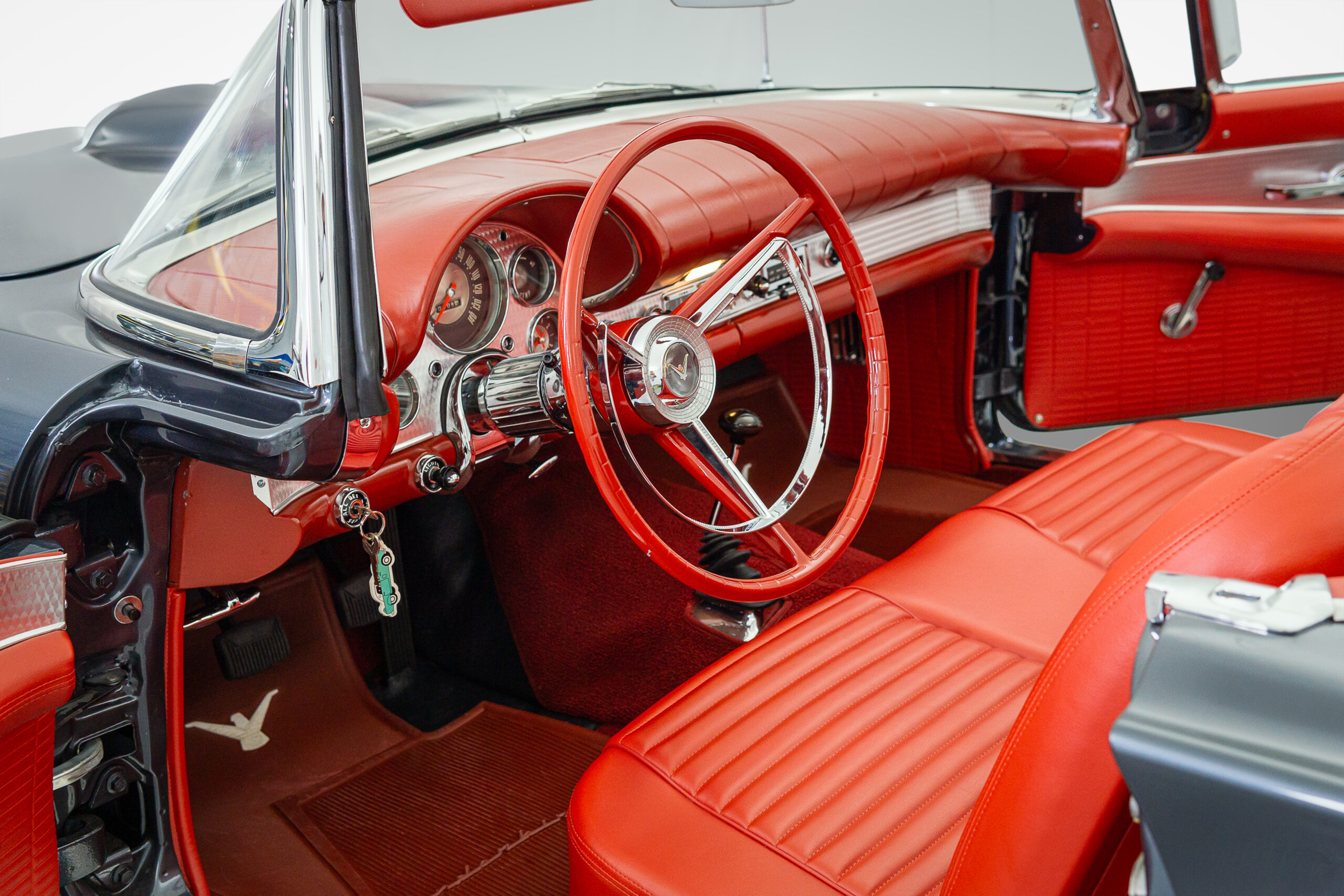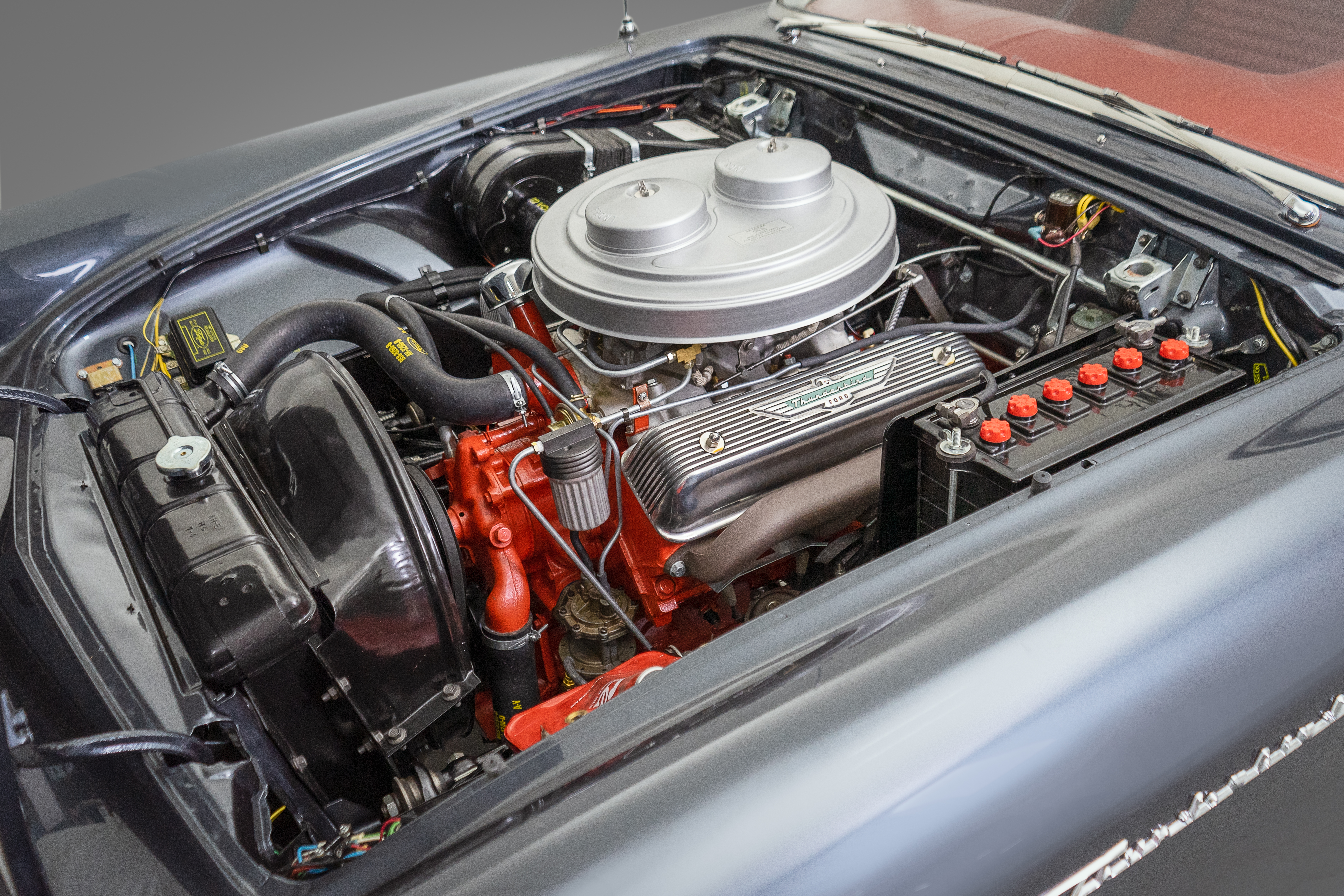

1957 Ford Thunderbird
Click any photo to view fullscreen. Mobile users can pinch to zoom. Tap ‘X’ to close.
SPEED
SPECIFICATIONS
- Engine Size: 312 cubic inches, V8
- Drivetrain: RWD, 4-speed Paxton Supercharger
- Cooling System: Liquid Cooled
- Spark-ignition 4-stroke
- Fuel capacity: 20.1 gallons
- Length: 181.3in
- Width: 71.3 in
- Height 51.6 in
- Wheelbase: 102 in
- Front track: 56 in
- Rear track: 56 in
- Curb weight: 3235 lbs
- Torque 439 ft.-lb.
1957 Ford Thunderbird
Originally created as Ford’s answer to the Corvette, the Thunderbird became a legend in its own right, smashing sales projections and cementing its place in automotive history. Its classic design captured all the magic of 1950’s car culture. It’s a car that’s practically begging for a drive-in movie. This is the vehicle people picture when they hear the words “collector car show.” The iconic portholes in the hardtop version, the spoked rims, and the half-skirted rear wheels all come together brilliantly as the symbol for personal luxury in the United States.
This particular year marked the 3rd production year for the T-bird, and featured design enhancements of the front bumper, plus a larger grille, tailfins, and tail lights. As beautiful as the exterior design is, the interior is equally sleek and cool, like a retro-1950’s diner.
Although Ford had decided not to go head-to-head against sports cars, the 1957 model offered new engine options including this car’s Supercharged 312. More than a few Corvette owners found themselves wondering what just happened as yet another Thunderbird passed them by. Within just 2 years, the Thunderbird would find itself at victory lane on the NASCAR circuit. Despite its origins as a boulevard cruiser, this magnificent piece of automotive engineering couldn’t get away from its inner speed demon.
The design of the ’57 T-Bird was so memorable that Ford resurrected the look with a retro-model for a four-year run starting in 2002. The fact that the Ford Thunderbird would see 11 different generations introduced to the U.S. market over a span of fifty years is testament to America’s love affair with this classic machine.




